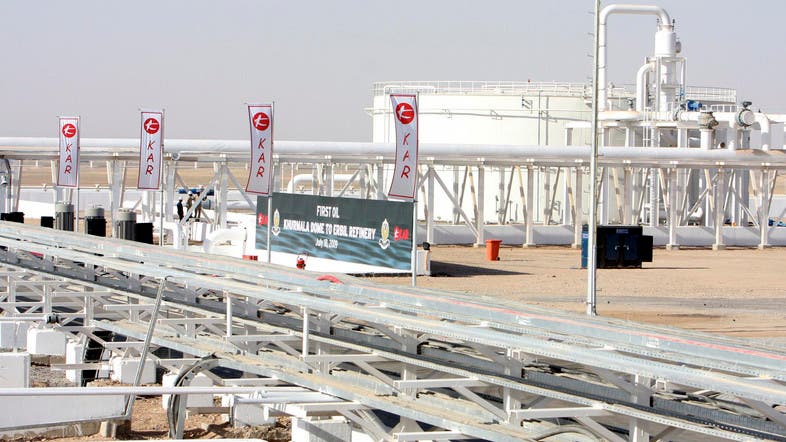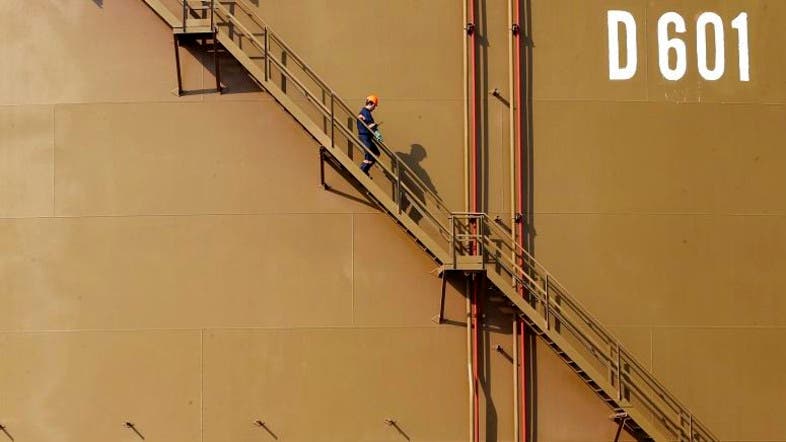 Oryx Petroleum announces successful results of BAN-1 exploration well in KurdistanThe KS Discoverer 1 rig spudded the BAN-1 well, the Corporation's fourth exploration well in the Hawler license area, targeting the Banan prospect, in mid-September 2013 and reached total depth of 4,000 metres in the Kurra Chine formation. Oryx Petroleum successfully flowed oil in two of six cased-hole drill stem tests ("DSTs") in BAN-1.
Oryx Petroleum announces successful results of BAN-1 exploration well in KurdistanThe KS Discoverer 1 rig spudded the BAN-1 well, the Corporation's fourth exploration well in the Hawler license area, targeting the Banan prospect, in mid-September 2013 and reached total depth of 4,000 metres in the Kurra Chine formation. Oryx Petroleum successfully flowed oil in two of six cased-hole drill stem tests ("DSTs") in BAN-1.Oryx Petroleum Corporation Limited announces that the successful testing of the BAN-1 exploration well has confirmed the Corporation's fourth consecutive oil discovery in the Hawler license area in the Kurdistan Region of Iraq. Oryx Petroleum is the operator and has a 65% participating and working interest in the Hawler license area.
Commenting today, Henry Legarre, Oryx Petroleum's Chief Operating Officer, stated:"We are very pleased with the drilling and test results of the BAN-1 exploration well. We successfully flowed oil from the well's primary targets in the Cretaceous and Lower Jurassic reservoirs. In addition, we encountered and flowed hydrocarbons to the surface in the Triassic Kurra Chine formation and established the presence of hydrocarbons in the Tertiary Pila Spi formation. Given the down-dip location of the well, these results underline the significant potential that exists up-dip of the BAN-1 well. We are now accelerating plans to drill an appraisal well targeting the crest of the Banan structure in order to better understand the full potential of this discovery."
Banan Exploration WellThe KS Discoverer 1 rig spudded the BAN-1 well, the Corporation's fourth exploration well in the Hawler license area, targeting the Banan prospect, in mid-September 2013 and reached total depth of 4,000 metres in the Kurra Chine formation. The BAN-1 well targeted oil potential in the Cretaceous, Upper and Lower Jurassic and the Triassic. Due to challenging control conditions experienced in the Triassic, where the well encountered and flowed hydrocarbons to surface, BAN-1 was plugged back to 3,400 metres in preparation for testing operations in the shallower Cretaceous and Jurassic formations.
The BAN-1 well was located down-dip of the crest of the Banan structure because the crest was outside the Hawler license area boundaries at the time of BAN-1 planning. The Corporation agreed to a boundary extension with the Kurdistan Regional Government in late 2012. 2D seismic data acquired in late 2013 covering the boundary extension area identified more clearly the likely crest of the Banan structure indicating that such crest is up-dip of the BAN-1 well.
Logging data, core analysis and observations during drilling in the Upper Cretaceous (Shiranish, Kometan and Upper Qamchuqa formations) confirmed the presence of hydrocarbons and similar matrix porosity as observed at Demir Dagh. Logging data and observations during drilling, including free oil on the shakers and cuttings, also confirmed the presence of hydrocarbons in the Tertiary (Pila Spi formation), Upper Jurassic (Najmah formation) and Lower Jurassic (Mus and Base Alan, Adaiyah, and Butmah formations).
Testing Program ResultsOryx Petroleum successfully flowed oil in two of six cased-hole drill stem tests ("DSTs") in BAN-1.
DST#1 conducted over a 106 metre interval in the Butmah formation in the Lower Jurassic successfully flowed naturally over a period of three days using a series of different choke sizes. The sustained flow rate achieved was 3,500 bbl/d of light oil for a 23 hour period using a 128/64" choke. No pressure decline was observed during the test. The crude oil from the Butmah formation was measured on site between 27° and 30° API gravity. Small quantities of natural gas and hydrogen sulfide were encountered.
The DST#6 conducted over a 123 metre interval in the Shiranish and Top Kometan formations in the Upper Cretaceous successfully flowed over a period of 42 hours using a series of different choke sizes. The sustained flow rate achieved was 820 bbl/d of oil for a 12 hour period using a 128/64" choke under natural flow. No pressure decline was observed during the test. The crude oil from the Shiranish and Top Kometan formations was measured on site between 15° and 21° API gravity. Small quantities of natural gas and hydrogen sulfide were encountered. The Corporation believes higher flow rates could be achieved using appropriate artificial lift.
The four other DSTs were conducted separately in the Middle Cretaceous (Kometan formation), Upper Jurassic (Najmah formation) and Lower Jurassic (Mus and Base Alan, and Adayiah formations). Logging results of each formation indicated the presence of hydrocarbons and a fracture network. During the tests small quantities of oil were produced from the Lower Alan and Mus formations, as well as 1,000 and 2,000 bbl/d of water. The Corporation believes the presence of water was due to the down-dip location of BAN-1. Importantly, the test results show the development of reservoirs that will be further appraised and tested by the planned BAN-2 well which will be located in a more crestal position.
All field fluid measurements will require laboratory analysis to confirm results and should be considered preliminary until such analysis has been done. The above test results are not necessarily indicative of long-term performance or of ultimate recovery.
NSAI Resources Estimates as of December 31, 2013Prior to the start of the testing campaign, Netherland, Sewell & Associates, Inc. ("NSAI") estimated as of December 31, 2013 that the Banan discovery contains low, best and high estimates unrisked gross (100%) contingent oil resources of 5, 40 and 440 MMbbl, respectively, all in the Cretaceous formations, and best estimate unrisked gross (100%) prospective oil resources of 235 MMbbl (risked: 46 MMbbl) in the Tertiary Pila Spi formation, the Jurassic Alan, Mus, Adaiyah and Butmah formations, and the Triassic Kurra Chine formation. See "Reserves and Resources Advisory" below for additional information regarding these estimates.
Accelerated Appraisal PlanGiven the successful drilling and testing results of the BAN-1 well, the Corporation is accelerating its plans to drill an appraisal well targeting a more crestal location of the Banan structure. The Corporation believes significant up-dip potential exists in all formations. The up-dip potential in the Cretaceous formation is underscored by NSAI's high estimate of contingent resources for Banan. The Corporation expects to spud BAN-2 in mid-2014.
http://www.oilvoice.com/n/Oryx_Petroleu ... 360bb.aspx

































